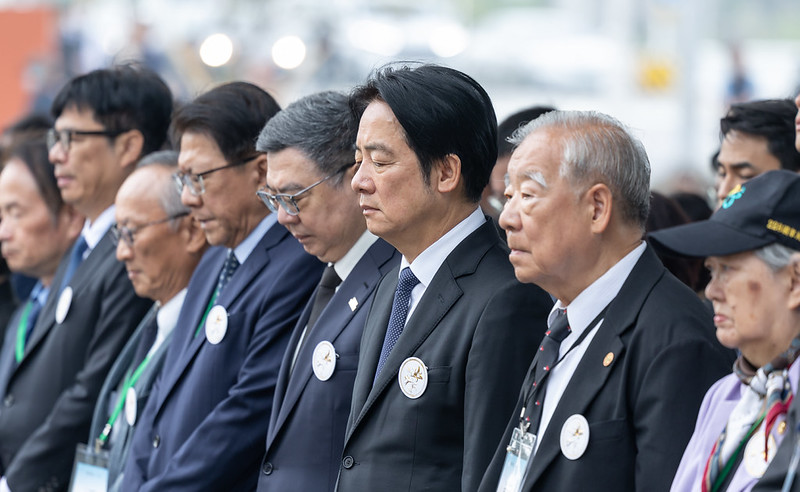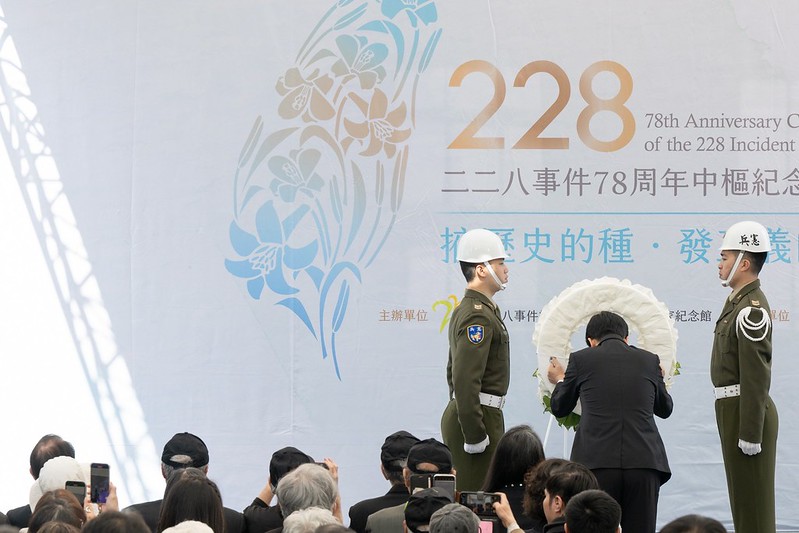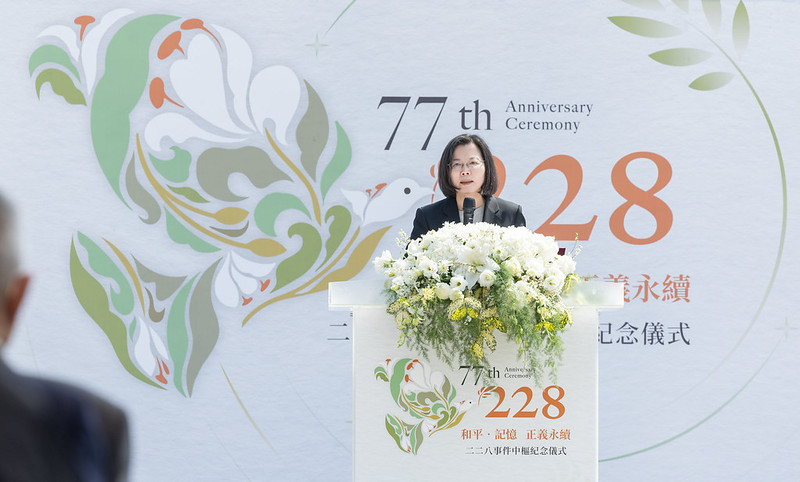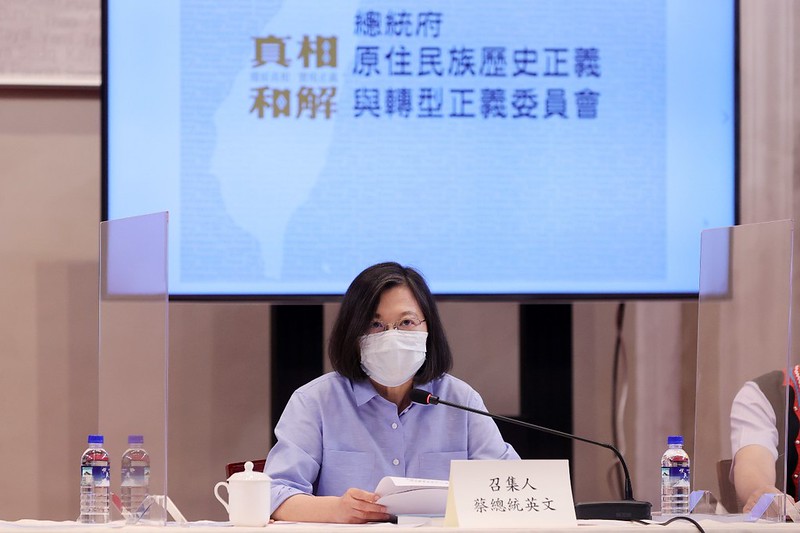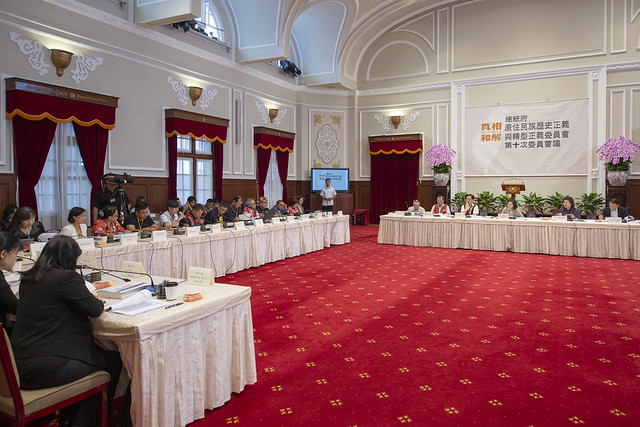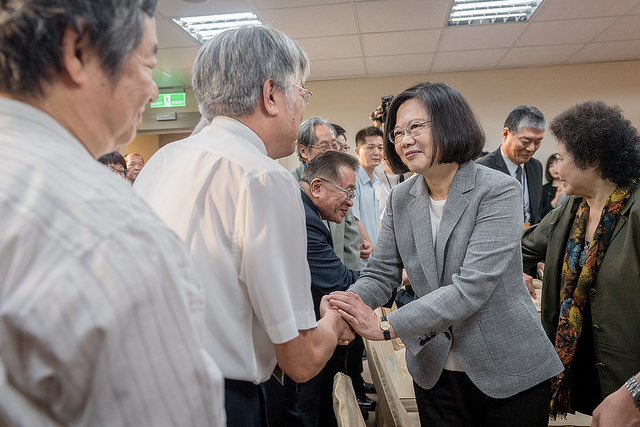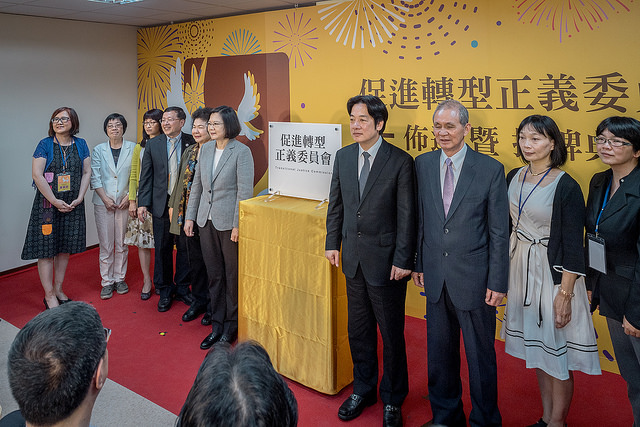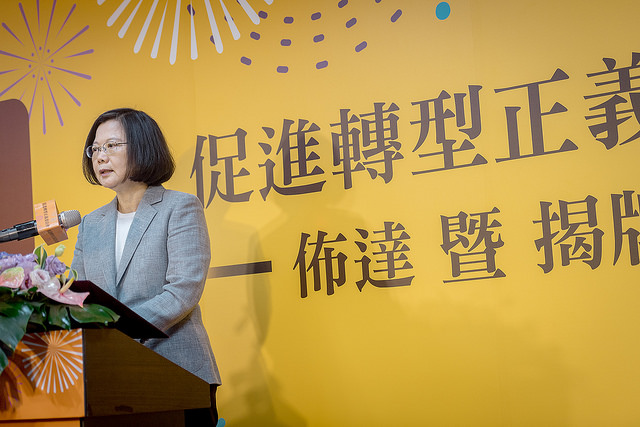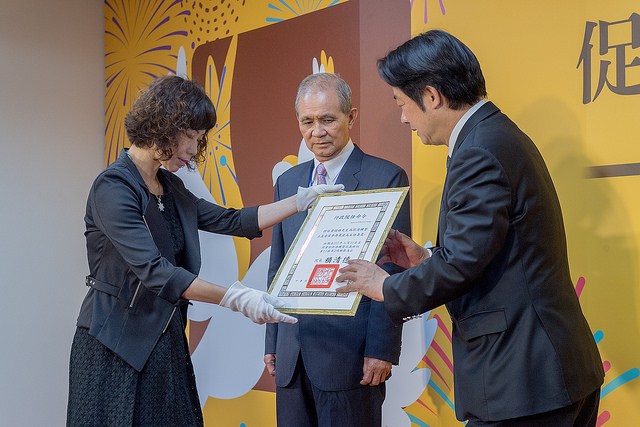News & activities
 News releases
News releases
On the morning of May 31, President Tsai Ing-wen presided over a ceremony inaugurating Taiwan's Transitional Justice Commission, saying that the commission is responsible for promoting transitional justice, and also an innovation base for Taiwan's democratic politics. She further said that the commission will help lead society as a whole to a new recognition of the shared past of all Taiwanese people, and toward creating a shared future for all.
A translation of the president's remarks is as follows:
Today, I'm truly honored to be standing here and witnessing, together with all of you, this historical moment in the deepening of Taiwan's democracy.
Taiwan has been democratizing for over 30 years. In the past, it's not that we weren't aware of how important transitional justice is, but those efforts were limited to providing monetary compensation or issuing certificates to restore reputations.
Several weeks ago when I was on Green Island to inaugurate the National Human Rights Museum, I heard Mr. Tsai Kun-lin (蔡焜霖), an elderly victim, still asking: "Who killed my friend?" The next day, at the Jing-Mei White Terror Memorial Park inauguration, another elderly victim, Chen Zhong-tong (陳中統), also asked: "Back then, who was the accuser?"
We have to admit that previous administrations never conducted a systematic truth investigation, or clarified the responsibility of the perpetrators. Previous administrations also never established a mechanism to overturn unjust verdicts for victims of political persecution.
If we don't do these things, Taiwan will be stymied by historical scars, and unable to enter the dialogue and reconciliation stage. Today, we can finally put that dilemma behind us.
Many countries have preceded Taiwan on the road to transitional justice. Germany, for example, implemented two different types of transitional justice to deal with the Nazi regime and East German rule.
South Africa also established a Truth and Reconciliation Commission to deal with its history of racial apartheid. That commission issued a 3,500-page final report.
Our neighbor Korea also established truth commissions to deal with different types of authoritarian-period political repression. They also adopted special laws to handle the restoration of reputations and payment of compensation appropriately. President Moon Jae-in even recently announced that they will continue to investigate the facts surrounding the Gwangju Uprising.
Germany, South Africa, Korea, Spain, Poland, and Chile have all instituted forms of transitional justice. And now, Taiwan will join them.
Having established a Transitional Justice Commission, like many other countries, we'll have an institutional body specifically tasked with promoting transitional justice. The commission's first task will be to issue a fact-finding report dealing with the period of authoritarian rule in Taiwan.
That fact-finding report will not be written behind closed doors. I hope that our Transitional Justice Commission will see the report-writing process as a kind of social dialogue, and expand the writing team.
We want to utilize more rigorous research methods and more newly uncovered historical archives to produce a report that can withstand strict scrutiny, and is widely accepted throughout Taiwan society. We want to be able to tell Taiwan society what the government did wrong during those years; who should take responsibility; where do the systemic problems lie; and how we can ensure we'll never make those mistakes again.
This is a challenging task, but I know that the commission members here today can get it done. I want to thank all the commission members, including the chairperson and vice-chairperson, for taking on this historical mission together. Many members have been friends for many years as part of civil society, overseeing the government's implementation of transitional justice. Today, I'm quite pleased that everyone has rolled up their sleeves and set to work, which is the only way reforms can succeed.
The commission members have expertise ranging from history, to law, to psychoanalysis, so they can apply their expertise to address various facets of transitional justice including overturning unjust verdicts, emotional healing, and social education.
Taiwan's transitional justice will draw on international experience. I believe our results will not only meet international standards, but also reflect Taiwanese characteristics that will contribute to the international community.
Even as we inaugurate this new facility, many people have already begun to work in the commission's offices. Many civil servants even interrupted their original career plan to voluntarily seek a place on this commission. Many young people from the private sector have also brought their idealism to the commission. I want to thank all of our partners participating in the commission. The Transitional Justice Commission is now the strongest of teams.
This commission is a body that promotes transitional justice, and also an innovation base for democratic politics. Here, we will create a model to deepen social dialogue, and begin to self-reflect on our history. Here, we will lead society as a whole to a new understanding of Taiwan's shared past, and create our shared future.
This may be the last generation in which the participants and victims of the authoritarian system live together on this island. If we don't do this now, we will miss our opportunity to clarify history.
Archbishop Desmond Tutu, who led transitional justice efforts in South Africa, once reminded us: "We don't possess a fiat by which we can declare 'Let bygones be bygones' and they dutifully become bygones and go and lie down quietly. They have an uncanny capacity to return and haunt us. An unexamined and unacknowledged past finds all kinds of skeletons emerging from all sorts of cupboards to bedevil the present."
It's high time we put the authoritarian era behind us. This is the only way to really consolidate Taiwan's democracy. Let's keep the faith, and work together. Thank you.
